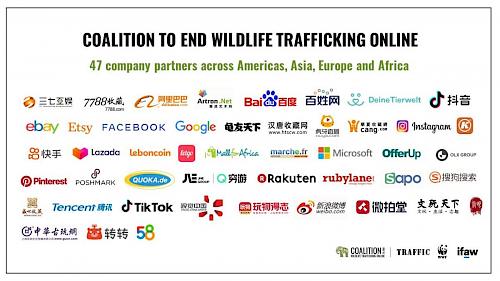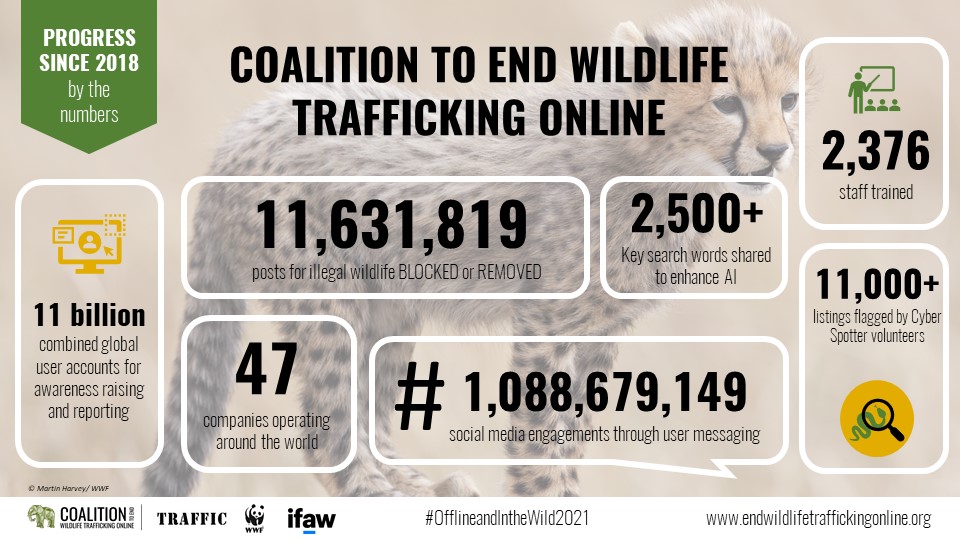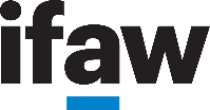Tech Companies Block More than 11.6 Million Transactions for Endangered Wildlife Online
Online technology companies in the Coalition to End Wildlife Trafficking Online reported removing or blocking over 11.6 million listings for endangered species and associated products from their online platforms to date. These listings included live tigers, reptiles, primates and birds for the exotic pet trade, as well as products derived from species like elephants, pangolins and marine turtles.
Today, the Coalition released a progress update to highlight the threat online trade poses to wildlife populations and spotlight the progress made through engagement with the private sector in an industry-wide approach.

In addition to removing and blocking millions of listings and posts, Coalition companies have driven awareness of threats to endangered species as well as an understanding of what is prohibited on company platforms and reporting mechanisms among users through communications that have received more than 1 billion engagements on social media. Since the launch of the Coalition by World Wildlife Fund (WWF), TRAFFIC and the International Fund for Animal Welfare (IFAW) in 2018, the number of companies participating doubled from 21 to 47 in 2021, now including companies with operations across Africa, Asia, Europe and the Americas and comprising more than 11 billion user accounts around the world.
“Since the release of the Coalition’s 2020 progress report 18 months ago, Coalition companies have removed an additional 8.3 million listings for prohibited wildlife,” said Crawford Allan, Senior Director of TRAFFIC at World Wildlife Fund. “This is due to increased availability of wildlife online and subsequent response by companies to address this threat, including enhanced automated detection systems. Overall, it is a fraction of prohibited wildlife that’s out there, but we will continue to scale our impact even further with determined efforts by more companies globally.”
Member companies have taken various actions to contribute to this progress, including strengthening wildlife policies, increasing staff ability to detect potential illegal wildlife products and live animals, taking action on suspicious listings reported by wildlife experts and volunteers in the Coalition’s Wildlife Cyber Spotter Program, enhancing algorithms through provided search words, creating reporting pathways and pop-up alerts to empower users to report suspicious content and sharing best practices with one another.
“The volunteers that are trained as part of the Coalition’s Cyber Spotter Program are our extra set of eyes on the web. They are provided with information on priority species, such as elephants, birds, and reptiles, and whenever they suspect a violation, they report it to us after which we share it with the related platforms for further action,” said Lionel Hachemin, Wildlife Campaigner at IFAW. “To date, with rounds in Germany, China, France, the US and Singapore, over 11,000 listings for illegal wildlife were reported to company members.”
Online wildlife trafficking is driven by consumer demand for wildlife products like elephant ivory, rhino horn and big cat skins, as well as for live pets, which is partly fueled by the promotion of exotic pet ownership and interactions on social media. Illegal wildlife trade, both online and in physical markets, is decimating populations of wild species and is a contributor to the catastrophic biodiversity loss seen globally.
Platform users can help keep endangered species #OfflineandIntheWild by reviewing the Coalition’s Prohibited Wildlife Policy framework to understand which species shouldn’t be traded and reporting listings directly on company platforms or through the Coalition’s online reporting page.

Notes:
Coalition 2021 Progress Update - Chinese
Coalition 2021 Progress Update - Dutch
Coalition 2021 Progress Update - German
Coalition 2021 Progress Update - French
Coalition 2021 Progress Update - English
Offline and In The Wild: A Progress Report of the Coalition to End Wildlife Trafficking Online
TikTok joins the Coalition to End Wildlife Trafficking Online
About Coalition to End Wildlife Trafficking Online

The Coalition to End Wildlife Trafficking Online consists of 47 member companies across the tech sector and is convened by WWF, TRAFFIC and the International Fund for Animal Welfare (IFAW). Working across technology and conservation sectors, the Coalition is creating consistency in policies and monitoring across the Internet, which provides a largely unregulated space for wildlife traffickers to identify interested buyers and initiate transactions. Since launching in 2018, the Coalition has doubled in size and includes operations across Africa, Asia, Europe, and the Americas.
WWF

WWF is an independent conservation organization, with over 30 million supporters and a global network active in over 100 countries. WWF's mission is to stop the degradation of the Earth's natural environment and to build a future in which humans live in harmony with nature, by conserving the world's biological diversity, ensuring that the use of renewable natural resources is sustainable, and promoting the reduction of pollution and wasteful consumption. Visit www.panda.org/news for the latest news and media resources and follow us on Twitter @WWF_media.
About IFAW (International Fund for Animal Welfare)

The International Fund for Animal Welfare is a global non-profit helping animals and people thrive together. We are experts and everyday people, working across seas, oceans, and in more than 40 countries around the world. We rescue, rehabilitate and release animals, and we restore and protect their natural habitats. The problems we’re up against are urgent and complicated. To solve them, we match fresh thinking with bold action. We partner with local communities, governments, non-governmental organisations and businesses. Together, we pioneer new and innovative ways to help all species flourish. See how at ifaw.org.




